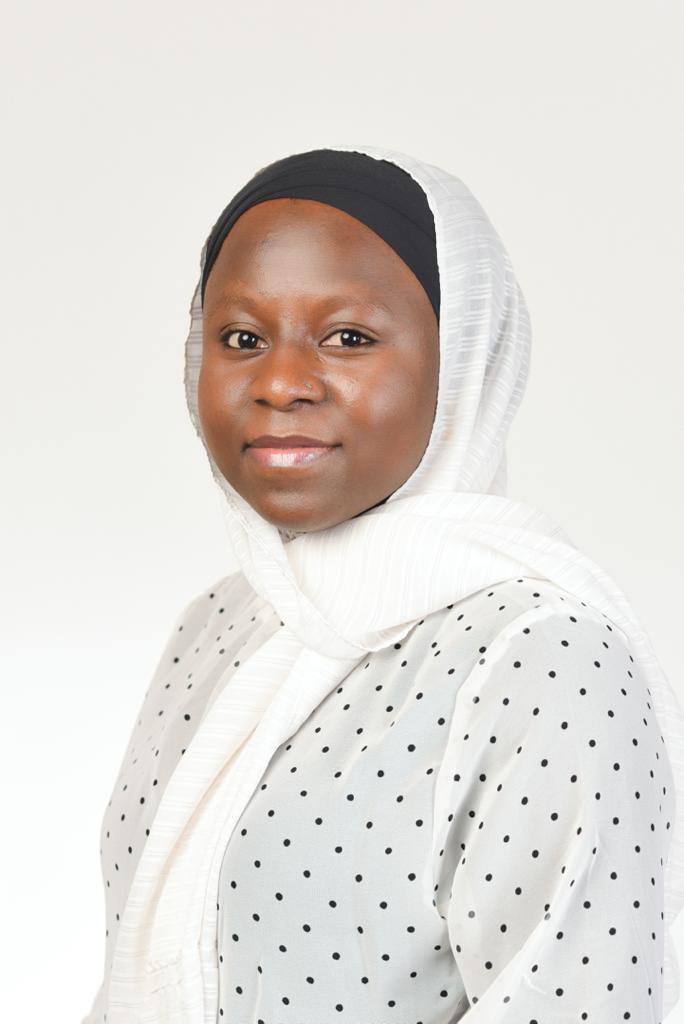“Everyone has a role to play for global development, but different ones”
Dr Medinat Malefakis, Senior Lecturer at NADEL since 2022, on the role of Western countries in development cooperation, her research, and her work at NADEL.

Medinat, you have been working intensively on terrorism for years – What brought you to this subject?
Medinat Malefakis: I think the question is more what brought this subject to me. For my master studies, I did research on internal displacement management, which I wanted to continue for my PhD. Only one conflict was ongoing at this time which was leading to large scale internal displacement, and this was the Boko Haram insurgency. So, I had to get into the terrorist insurgence itself to get into the topic I wanted to research for my PhD.
How do the areas of conflict, terrorism, and displacement relate to development cooperation?
The nexus is simple. A large part of development cooperation is focused on humanitarian aid for populations affected by, and displaced due to conflict and terrorism. Moreover, development assistance is often implemented as ‘assistance’ for countries that have come through long-term protracted conflict. Actors in development cooperation portend to attempt curbing terrorism, conflict and displacement through various development cooperation projects and programs. These areas thus relate directly and indirectly.
“Expertise on development cooperation should have no place being defined by the color of one’s skin.”Medinat Malefakis
You come from Nigeria, a former British colony. How do you personally feel about international cooperation with its many “white experts”?
Personally, I believe that with all the ongoing conversations on racism, decolonization of aid, institutions, academic and research practices, expertise on development cooperation should have no place being defined by the color of one’s skin. It is just another representation of everything we hope to have gone past in international cooperation, but which we unfortunately have not.
Why is it difficult to overcome this divide?
The contributors to our inability to go past this are regrettably on both sides of the divide. The historical world order, the hegemonic history of colonialism and racism, as well as the never-ending manifestations of white fragility and white gaze are on one side of the divide. On the other side are the heritages that these have bestowed on many colonized countries (overtly and covertly) such as governments in countries like Nigeria who continue to shelve their responsibilities in the governance mandates given to them by their people. In between the two sides of the divide is when vested interests of development partners plays the biggest role in international cooperation. With all of these and many more, international cooperation practically and theoretically will keep suffering, and will be decided and dominated by indices that are so mundane, something no one on earth had a choice in determining: the color of your skin!
“Development cooperation [...] is still determined by long-serving world orders and age-long power dynamics that made aid necessary in the first place.”Medinat Malefakis
What other major problems exist in development cooperation?
The problems that revolve around ‘aid’: its effectiveness, contemporary dependence on it by many countries and vested interests that determine who gets it and who does not are some of the problems. Another problem in development cooperation is how it is still determined by long-serving world orders and age-long power dynamics that made aid necessary in the first place.
Do Western countries still have a role to play in development cooperation today?
Everyone has a role to play for global development but different ones. This depends on the country, context, or cooperation theme. For instance, regarding climate change, the biggest emitters (high-income countries) need to take responsibility and provide the financial means to mitigate its effects on low-income countries. Development cooperation in such situations should have the West assuming their expected roles. However, in intra-country political tussles, development cooperation championed by the West based on ‘Western’ ideological leanings are not known in many cases to solve the problems. Take the role of the French in francophone Africa; they have clearly blurred the lines between dependency and neo-colonialism, but all in the name of development cooperation.
“The needs and inputs of affected population should be at the forefront of development cooperation.”Medinat Malefakis
What needs to be considered in conflict settings when it comes to development cooperation?
The needs and inputs of affected population should be at the forefront of development cooperation. Cooperation responses no longer need to be dictated by and formulated from views and assumptions of external actors. The consideration should no longer be on participatory approaches which more often than not are mere tokenization. Now, development cooperation should be about co-creation, with development partners and affected population as partners, at all levels and all phases, with equally effective and impactful roles. Affected population should no longer have to ask for a seat at the table of development cooperation. They should be determining who sits at such tables with them.
What are your goals for your work at NADEL – Center for Development and Cooperation?
I would like to bring in perspectives and insights from my mixed academic and practitioner/policy experience into my courses. I would also hope that co-creating courses with nuanced and multi-sectoral insights helps the students to prepare adequately for post MAS and CAS professional lives.
Thank you for the interview, Medinat!